

Wife Linda Lee Thomas
Queer Places:
Westleigh Farms, 2107 S Frances Slocum Trail, Peru, IN 46970
Worcester Academy, 81 Providence St, Worcester, MA 01604
Harvard University (Ivy League), 2 Kirkland St, Cambridge, MA 02138
Yale University (Ivy League), 38 Hillhouse Ave, New Haven, CT 06520
Garland Lodging House, 242 York St, New Haven, CT 06511
Schola Cantorum de Paris, 269 Rue Saint-Jacques, 75005 Paris
13 Rue Monsieur, 75007 Paris
Ca’ Rezzonico, 30100 Venezia VE
Château de la Garoupe, 515 Chemin des Contrebandiers, 06160 Antibes
Waldorf Towers, 301 Park Ave, New York, NY 10022
416 N Rockingham Ave, Los Angeles, CA 90049
Buxton Hill, 1411 Main St, Williamstown, MA 01267
Mount Hope Cemetery, 411 N Grant St, Peru, IN 46970
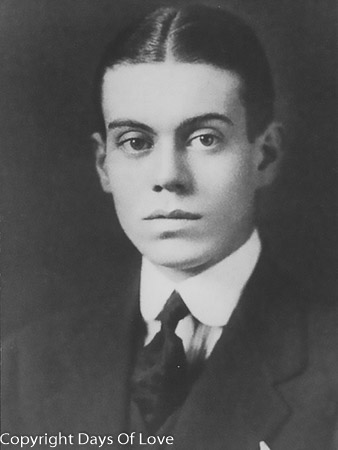 Cole
Albert Porter (June 9, 1891 – October 15, 1964) was an American composer
and songwriter. Porter married Linda Lee Thomas, a wealthy socialite eight
years his senior. Porter adored Linda's elegance and wealth and Linda found in
Porter a witty and youthful companion who made no sexual demands. Linda's many
friends, a majority of whom were gay or lesbian, soon became Cole's friends,
and beginning in the early 1920s the Porters spent much of their lives
traveling around the world or entertaining in the company of gay men such as
Noël Coward,
Jack Wilson,
Howard Sturges, and
Monty Woolley and lesbian such as
Elsa Maxwell,
Anne Morgan, Elsie de Wolfe, and
Elisabeth Marbury. Hollywood is an
American drama web television miniseries about a group of aspiring actors and
filmmakers during the Hollywood Golden Age in the post-World War II era trying
to make their dreams come true. Cole Porter is portraied as being one of the
customers of
Scotty Bowers' notorious gas station.
Cole
Albert Porter (June 9, 1891 – October 15, 1964) was an American composer
and songwriter. Porter married Linda Lee Thomas, a wealthy socialite eight
years his senior. Porter adored Linda's elegance and wealth and Linda found in
Porter a witty and youthful companion who made no sexual demands. Linda's many
friends, a majority of whom were gay or lesbian, soon became Cole's friends,
and beginning in the early 1920s the Porters spent much of their lives
traveling around the world or entertaining in the company of gay men such as
Noël Coward,
Jack Wilson,
Howard Sturges, and
Monty Woolley and lesbian such as
Elsa Maxwell,
Anne Morgan, Elsie de Wolfe, and
Elisabeth Marbury. Hollywood is an
American drama web television miniseries about a group of aspiring actors and
filmmakers during the Hollywood Golden Age in the post-World War II era trying
to make their dreams come true. Cole Porter is portraied as being one of the
customers of
Scotty Bowers' notorious gas station.
Producer Arthur Freed, who was not gay, never had as his purpose the creation of a team of gay artists for MGM, nor were all the members of the Arthur Freed unit gay. Freed did want a first-rate team, however, and hired without regard to sexual orientation. A large number of the gifted people on it turned out to be gay, including composers Cole Porter, Frederick Loewe, Robert Wright, and Chet Forrest, choreographers Robert Alton and Jack Cole, and directors Charles Walters and the closeted Vincente Minnelli.
Born to a wealthy family in Indiana, he defied the wishes of his domineering grandfather and took up music as a profession. He graduated from Worcester Academy in Massachusetts in 1909 and entered Yale University in the fall of that year. The slender and gregarious freshman became one of the best-known members of his class. He gravitated almost at once to a group of upper-classmen who were very much like himself: wealthy, homosexual, and devoted to theater, music, and with. Cole's lifelong friendships with Monty Woolley and Leonard Hanna date from this period.
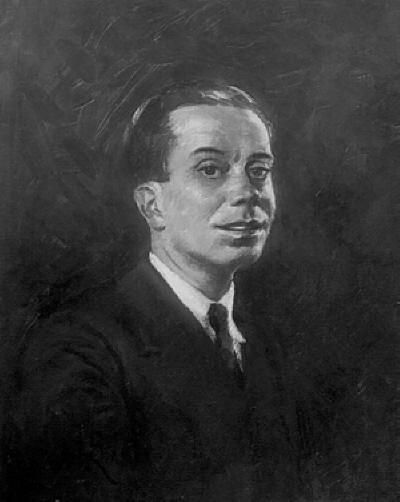
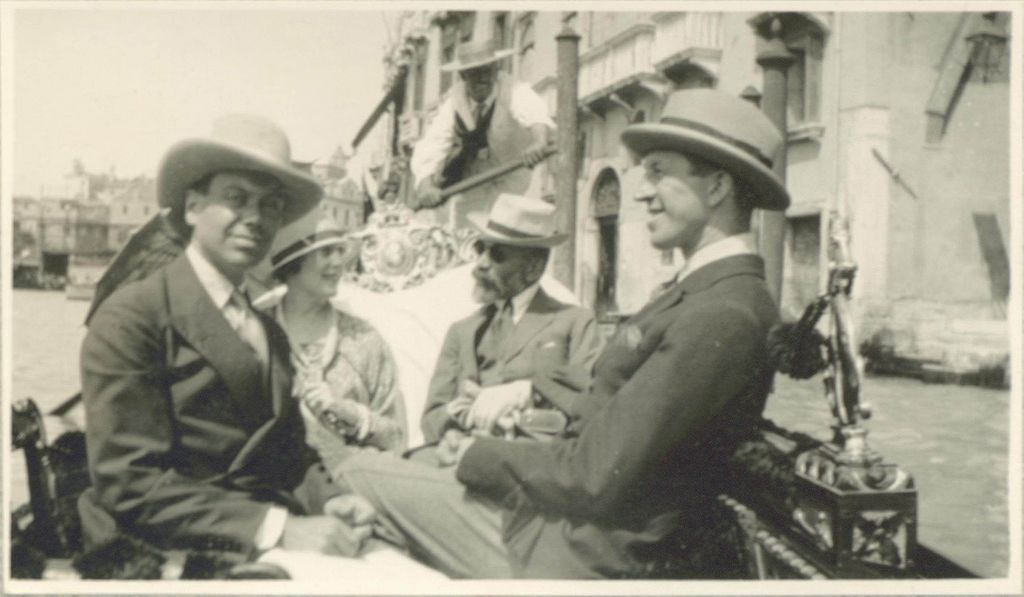
Cole Porter, Linda Lee Thomas, Bernard Berenson, and Howard Sturges in gondola, 1923
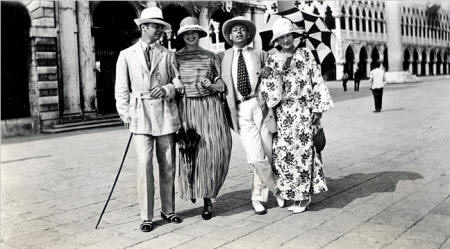
Gerald Murphy, Sara Murphy, Cole Porter, Linda Lee Thomas
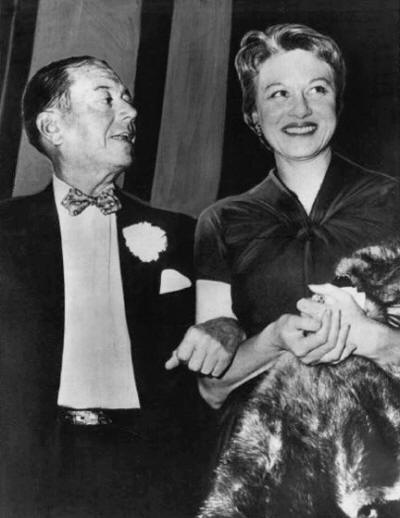
Jean Howard and Cole Porter in early 1954
.jpg)
242 York St, New Haven
Waldorf Towers
Cole Porter's piano inside the Waldorf Towers
Porter roomed at Harvard in Craigie Hall (one of his roommates was Dean Acheson, later U.S. secretary of state) and Porter and T. Lawrason Riggs, an old classmate from Yale who was a graduate student in English at Harvard at the same time, collaborated in the fall of 1915 at Harvard on his first professional musical, See America First, which opened in New York the next year (it closed after only fifteen performances). There is also a wonderful souvenir of Porter’s Harvard years, “Craigie 404,” about their “crazy Craigie crowd. They play all day, all night they play” and so on.
Classically trained, he was drawn towards musical theatre. After a slow start, he began to achieve success in the 1920s, and by the 1930s he was one of the major songwriters for the Broadway musical stage. Unlike many successful Broadway composers, Porter wrote the lyrics, as well as the music, for his songs.
Cole Porter and Linda Lee Thomas married in 1919. His feelings for his wife were tender but not passionate; it was “a mother-son relationship,” his biographer wrote, and while Porter was dutiful and attentive to his wife, he also engaged in a secret homosexual party scene wherever he was, including back in Harvard’s orbit, where, for instance, his great friend Nat Saltonstall threw a “boy party” after the Boston opening of Porter’s musical Jubilee, in 1935. According to McBrien, this was “the same ‘wild party’ at the Boston Ritz that writer Schuyler Parsons alluded to in his book, Untold Friendships.”
Porter did have, however, a series of long-standing very serious relationships with boyfriends who were as well close friends and muses, most notably perhaps with Eddy Tauch—an architect, a Cornell graduate, and probably the inspiration for "Night and Day", who was perhaps the love of his life. In 1942, for instance, it was dancer and choreographer Nelson Barclift, a graduate of Ted Shawn's dance school, at that time in the army, stationed at West Point. Porter's "You'd Be So Nice to Come Home To," the only song from Porter's film Something to Shout About still heard today, was "our song," Barclift recalled years later, the more happily so, he said, because it knocked Irving Berlin's "White Christmas" off the hit parade that year.
In Cole Porter (1981), by William McBrien, never-before-seen letters shine light into Porter's ongoing relationships with Ballets Russes star Boris Kochno, architect Ed Tauch, choreographer Nelson Barclift, director John Wilson, and longtime friend Ray Kelly -- whose children still receive half of the childless Porter's copyrights.
Cole Porter met Darius Milhaud at the Princesse de Polignac’s house. Prompted by Gerald Murphy, Milhaud invited Porter to create a ballet for him and the Ballets Suédois. Porter invited the Murphys down to Venice so that he could work on it with Gerald, who wrote the scenario and painted the backdrop. Within the Quota (‘the first jazz ballet’) was premiered at the Théâtre des Champs-Elysées. On 25 October 1923 Jean Börlin performed La Création du Monde and Within the Quota, the latter with a libretto by Gerald Murphy and music by Cole Porter. In 1925, while mixing with the Sergei Diaghilev set in Venice, Porter appears to have fallen in love with Boris Kochno. He made the advances, Kochno the retreats. Porter occasionally contributed funds to Kochno and the Ballets Russes.
After a serious horseback riding accident in 1937, Porter was left disabled and in constant pain, but he continued to work. His shows of the early 1940s did not contain the lasting hits of his best work of the 1920s and '30s, but in 1948 he made a triumphant comeback with his most successful musical, Kiss Me, Kate. It won the first Tony Award for Best Musical.
Porter's other musicals include Fifty Million Frenchmen, DuBarry Was a Lady, Anything Goes, Can-Can and Silk Stockings. His numerous hit songs include "Night and Day", "Begin the Beguine", "I Get a Kick Out of You", "Well, Did You Evah!", "I've Got You Under My Skin", "My Heart Belongs to Daddy" and "You're the Top". He also composed scores for films from the 1930s to the 1950s, including Born to Dance (1936), which featured the song "You'd Be So Easy to Love"; Rosalie (1937), which featured "In the Still of the Night"; High Society (1956), which included "True Love"; and Les Girls (1957).
In the 1940s, for important visitors, the homes of George Cukor and Cole Porter were the first stops elite visitors to Hollywood always made, with Laurence Olivier, Ethel Barrymore, Noël Coward, Jean Cocteau, and Lady Mendl regularly paying homage to those rival queens and lifelong friends. Cukor was reportedly jealous of any other Hollywood personality hosting "salon" type gatherings which he believed competed with his own. Adrian and Cole Porter both annoyed Cukor by doing so.
In 1942 Porter opened, with financial backing, the 1-2-3 Club at 123 E. 54th St. in NYC, "apparently a safe meeting place for Porter and other homosexuals." He wrote to apparently desirable men, asking them to meet him there. To Monty Woolley ("Dear Beardie") he wrote, "It was very nice to get your drunken telegram this morning and to realize that you haven't improved in the least."
Though Cole Porter was happily married and generally considered closeted in his professional life, he was surprisingly revealing in private communiqués. To a young lover: "Oh Boris, write me and tell me that you love me as much as I love you. You can't say it too often, because you are so far from me and it makes me so miserable." Letters to his close friend Sam Stark also refer frankly to his homosexuality. Editors Cliff Eisen & Dominic McHugh note, "He refers to a lover (Michael Pearman) and mentions Gore Vidal's gay novel 'The City and the Pillar' (1948). Here is confirmation that although Porter kept this part of his life private, he was sexually active, promiscuous, and apparently not particularly repressed about his sexuality."
My published books: